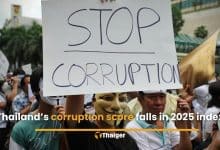Singapore’s prime minister urges ASEAN to work towards a joint power grid

Following the success of the Lao PDR-Thailand-Malaysia-Singapore power integration project, Singapore’s Prime Minister, Lee Hsien Loong, 70 years old, called on ASEAN yesterday to continue working towards a joint power grid. A regional power grid will strengthen energy security, and resilience in member states, and advance regional decarbonisation, Lee said. The Lao PDR-Thailand-Malaysia-Singapore project demonstrates that “multilateral power trading in the region is feasible,” Lee stated at the 42nd ASEAN summit’s plenary session, themed ASEAN Matters: Epicentrum of Growth, in Labuan Bajo, Indonesia.
Singapore began importing renewable energy from Laos through Thailand and Malaysia on June 23, 2022. Gan Kim Yong, Minister for Trade and Industry, 63 years old, provided a project update in a parliamentary written reply last November. From June 23 to October 31, over 170,000 megawatt-hours of electricity were imported from Lao PDR to Singapore, with the electricity flow remaining stable.
Lee highlighted that member states could reap economic benefits by improving people’s digital connectivity and literacy. He strongly supports Indonesia’s efforts to develop the ASEAN Digital Economy Framework Agreement and welcomes the proposed Leaders’ Statement on the agreement to be issued later this year. “Economic integration has long been ASEAN’s priority and must always remain so. It underpins ASEAN centrality,” declared Lee, adding that core agreements, such as the ASEAN Trade in Goods Agreement, should be updated and upgraded to stay relevant to evolving business practices.
Lee also stressed that ASEAN should increase cooperation on transnational issues, including protecting its people from “increasingly sophisticated” cross-border threats. The need for enhanced cybersecurity cooperation was highlighted, and Lee noted the “good progress” made on the ASEAN Regional Computer Emergency Response Team proposal, aiming to strengthen regional cyber cooperation and incident response capabilities against sophisticated cyber threats.
However, deepening cooperation in these fields requires strong political support. Lee emphasised that given the troubled global outlook, ASEAN must “stay cohesive and united at the highest levels”, including embracing a shared vision for the region’s future. He welcomed two Leaders’ Statements, affirming their commitment to the Proposed Core Elements of the Post-2025 Vision submitted the previous year. This vision called on ASEAN to pursue openness, transparency, inclusivity, rules-based operations, deeper external engagements, as well as new areas of cooperation, including sustainability, cybersecurity, and digital and green economies.
Lee also mentioned that the vision aims to strengthen ASEAN as an institution, with Singapore welcoming efforts to review the association’s capacity and institutional effectiveness. He advocated for streamlining and optimising ASEAN processes and strengthening the ASEAN Secretariat and the role of the ASEAN Secretary-General to enable more effective implementation of key priorities.
Furthermore, Lee stated that ASEAN has adopted a roadmap for Timor-Leste’s membership, laying out the obligations and commitments the country needs to fulfil. “It is robust and comprehensive. It has been extensively discussed and carefully designed and has our full support,” he said. Singapore will continue to support Timor-Leste in building its capacity as it prepares to join ASEAN, working together to complete all requirements in the roadmap, including negotiating to accede to ASEAN’s vast array of treaties and agreements. Singapore has launched a Singapore-Timor-Leste ASEAN Readiness Support (STARS) assistance package to train Timor-Leste officials in ASEAN knowledge and skills training, along with educational capacity building.
Taur Matan Ruak, Timor-Leste’s Prime Minister, 65 years old, attended the 42nd ASEAN summit as an observer, after ASEAN’s previous agreement in principle to admit the country as its 11th member at the previous summit in Cambodia. This granted Timor-Leste observer status at future ASEAN meetings, including summit plenaries. Timor-Leste will join ASEAN as a member state once it meets the requirements set out in the roadmap, reports Channel News Asia.
Latest Thailand News
Follow The Thaiger on Google News:


























